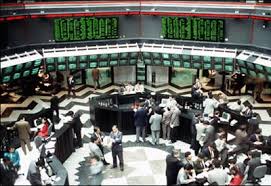Tuesday, 22 September 2015 23:29
 SAO PAULO: Brazil’s currency fell to its weakest level ever on Tuesday as investors cast a wary eye on negotiations over spending bills that could further complicate the country’s tenuous fiscal position.
SAO PAULO: Brazil’s currency fell to its weakest level ever on Tuesday as investors cast a wary eye on negotiations over spending bills that could further complicate the country’s tenuous fiscal position.
The currency, like others across Latin America, was also hammered by a global rise in the dollar sparked by increased expectations that the US Federal Reserve is still on track to raise interest rates this year.
Brazil’s real fell 2 percent to a session low of 4.06 per dollar, breaking a major psychological barrier and surpassing the previous record low of 4.014 reached in October 2002.
The currency has weakened over 34 percent against the dollar this year as a sharp economic recession, lower commodities prices, expectations for higher interest rates in the United States and political turbulence at home sap investor demand for Brazilian assets.
Politics remained in focus on Tuesday, with Brazilian legislators set to vote on a series of controversial bills recently vetoed by embattled President Dilma Rousseff.
In particular, investors are monitoring the possible override of Rousseff’s veto on a bill that would grant an up to 78.6 percent pay raise for judiciary employees. Such a spending increase would put Brazil’s fiscal savings goal at risk and further increase the chances of additional sovereign credit downgrades.
Standard & Poor’s stripped Brazil of its investment-grade credit rating earlier this month.
“The difficulties that the administration is facing in Congress is making the country nearly ungovernable from a fiscal standpoint,” said Jo?o Paulo de Gracia Correa, a trader at brokerage SLW in Sao Paulo.
Moody’s Investors Service said on Tuesday, however, that Brazil remains in better shape than countries that lost their investment-grade credit rating, suggesting the country’s sharp economic downturn was not enough for a downgrade to junk.
Other Latin American currencies fell sharply as well, with Mexico’s peso posting its biggest intraday decline in more than a month and Chile’s peso plunging its most in over two years.
Atlanta Fed President Dennis Lockhart said on Monday that a rate hike later this year was still possible, adding pressure to emerging market currencies. A decline in the price of key Latin American commodities exports such as copper and petroleum also weighed as investors continued to fret over an economic slowdown in China.
Latin American stock markets fell sharply, with the broader MSCI Latin American stock index losing 3.5 percent, its biggest slide since late August.

























